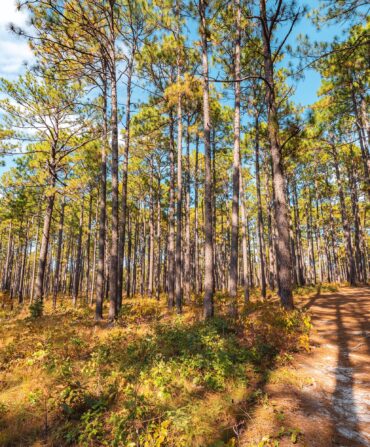When Jennie L. Stephens walks on land that a family has inherited but risks losing, she thinks about the hopes and ambitions of the ancestor who first acquired the place. “That person got that land through blood, sweat, and tears,” she explains, as many of them were the formerly enslaved who “went from being property to owning property. They knew owning land was a way for them to be self-sufficient.”
For seventeen years, Stephens has headed the Center for Heirs’ Property Preservation, a North Charleston, South Carolina, nonprofit that offers educational seminars and legal services to help owners of heirs’ property, a home or parcel of land that passes from generation to generation from an ancestor whose estate didn’t undergo the probate process. Heirs have the right to use and sell their interest in the property, but since they don’t possess a clear title, they can’t use the land as collateral to obtain a mortgage or funds to make repairs to the real estate. The asset is also often ineligible for federal aid, such as FEMA after a natural disaster, or benefits from U.S. Department of Agriculture farm programs. These complications lead to land loss—due to the likes of adverse possession, tax auction, or court-forced partition by sale—and are thought to disproportionately affect racial minorities and low-income families.
Stephens sees what she does as her life’s calling. “My father was killed when I was five—I think that gives me this justice bent I have,” she says. “My first name, Jennie, means ‘fair.’ I like things being fair, and I don’t think people should pick on those who are less privileged or underserved. I tell people I go to work every day, put on my super-she-ro cape, and serve as a defender of family land.”
Applicants turn to Stephens and her staff for any number of reasons—the property tax bill for their portion, the need for repairs. “Low-income folk don’t sit around the dinner table and talk about estate planning,” she points out. “Their focus is on survival, especially when the land isn’t making any money for them.” The Center, among other solutions, can help heirs put the land to work for them, particularly through sustainable forestry, including providing technical assistance thanks to a partnership with the USDA. “You have low-wealth folks who are literally sitting on an asset, but they don’t know they can sell their trees,” Stephens says. “Education means a lot, and at the Center, we see ourselves as a tool.”
* * *
Expertise: Heirs’ property advocacy
Location: North Charleston, South Carolina
Director and CEO since: 2006
Expansion pack: The nonprofit partners with others to expand its reach, including the Mississippi Center for Justice, as part of the Mobile Basin Heirs’ Property Support Initiative, which provides legal services and access to financial and forestry resources to Mississippi and Alabama residents.
Read about all ten Champions of Conservation.








